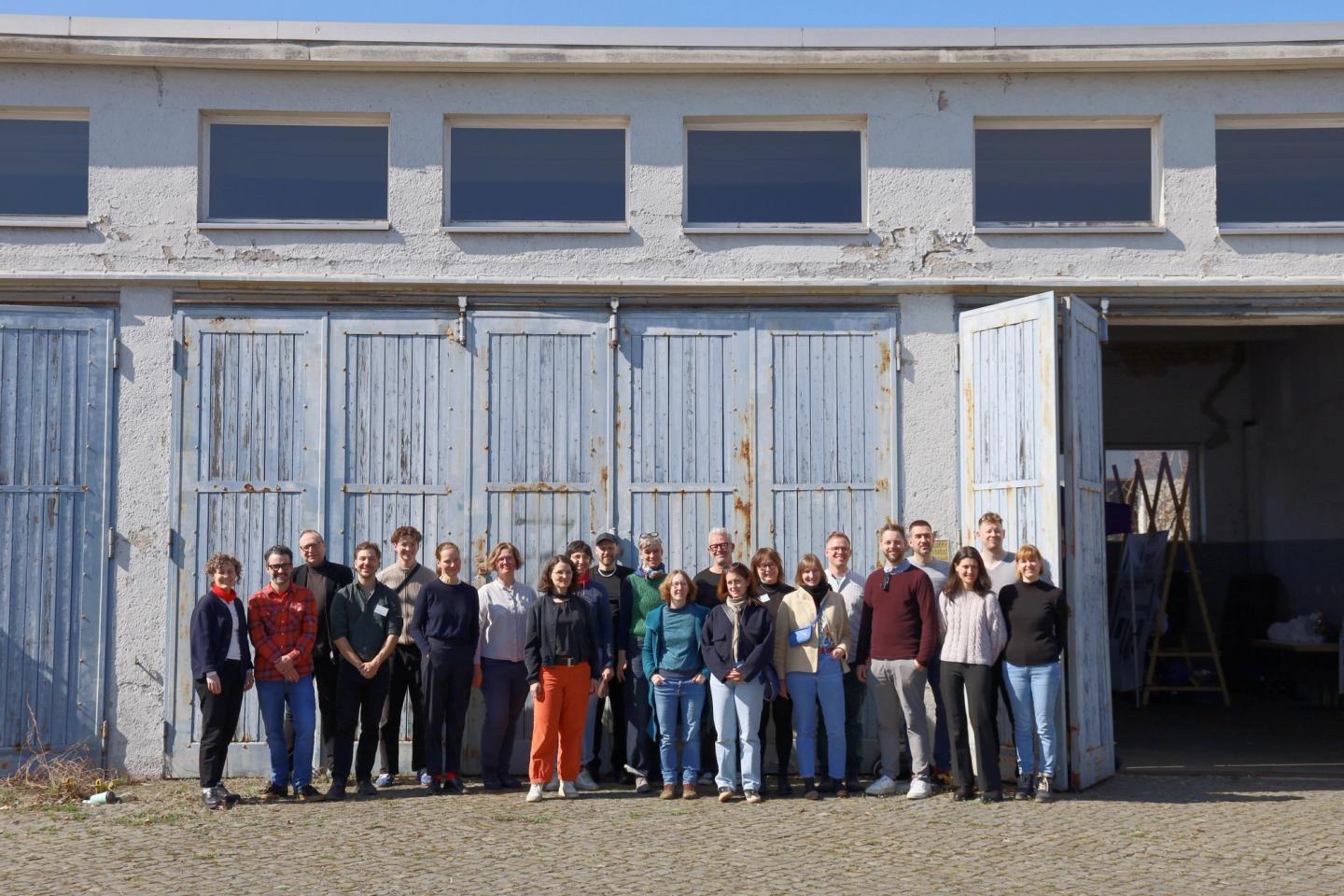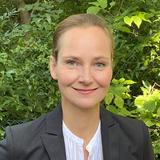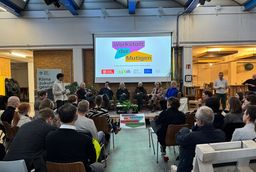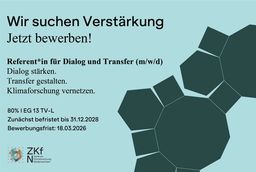Kick-off of the Climate Future Lab OpenCultures
- April 17, 2025
- 2 min. Reading time

The Climate Future Lab Open Planning Cultures. Design Principles for Transformative Spaces (OpenCultures) research project kicked off with a three-day kick-off meeting on 26 March 2025. Twenty-two researchers from TU Braunschweig, the Julius Kühn Institute and the ‘Genealogy of the Present’ research centre at the Carl von Ossietzky University of Oldenburg took part in the kick-off meeting. Against the background of their different disciplines in spatial planning, engineering, social sciences, humanities and natural sciences, the participants discussed approaches to working together. OpenCultures coordinator Dr Uta Leconte explains: ‘The initial aim of OpenCultures is to overcome disciplinary boundaries in order to then conduct inter- and transdisciplinary research into how climate knowledge can be translated into sustainable living through design principles that directly support climate adaptation in urban development and spatial planning.’
In three sub-labs, OpenCultures aims to shed light on and close this ‘translation gap’ and to unravel the complex relationship between climate knowledge and the practice of urban design and sustainable living. In doing so, the social, material and symbolic dimensions of climate-sensitive forms of urban design will be examined. In transdisciplinary collaboration with practice partners from civil society, as well as social and cultural organisations, OpenCultures aims to relate different disciplinary knowledge, other forms of knowledge and non-academic knowledge, and to show alternative ways of understanding climate change and translating it into action. For example, the Gartennetzwerk Braunschweig (Braunschweig Garden Network) is integrated into OpenCultures as a research subject and object, linking the everyday knowledge of the urban society with formal planning processes.
Asking questions to find points of contact
The kick-off event focused on asking questions, getting to know each other personally and engaging with transdisciplinary and transformative spatial research. The participants were keen to pose questions from their own sublabs to the other sublabs, thus identifying connections and different perspectives, and formulating initial approaches for interdisciplinary collaboration. For example, different disciplinary perspectives and concepts were discussed, and a common approach within and between the interdisciplinary working groups in the processing of the joint work packages was formulated. A keynote speech by Anja Bierwirth from the Wuppertal Institute for Climate, Environment and Energy on the challenges of interdisciplinary research addressed communicative and procedural challenges in real-world laboratories and transdisciplinary research. In a walk led by Hanna Noller and Burcu Daglayan, participants were able to explore together the site where the design build project and living lab of OpenCultures will be realised: the Co_Living Campus on the northern campus of TU Braunschweig, a joint project of the city of Braunschweig and TU Braunschweig, to which OpenCultures is contributing with the fundamental question of just development and climate-adapted spatial planning in times of anthropogenic climate change.
Contact persons
 Dr. Uta LeconteCoordinator, Climate Future Lab OpenCultures, Institute for History and Theory of Architecture and Urbanism, Technische Universität Braunschweig
Dr. Uta LeconteCoordinator, Climate Future Lab OpenCultures, Institute for History and Theory of Architecture and Urbanism, Technische Universität Braunschweig Hanna NollerCoordinator, Climate Future Lab OpenCultures, Institute for History and Theory of Architecture and Urbanism, Technische Universität Braunschweig
Hanna NollerCoordinator, Climate Future Lab OpenCultures, Institute for History and Theory of Architecture and Urbanism, Technische Universität Braunschweig
More Posts
All
Taking a holistic approach to climate adaptation in cities
Interview with UMEX-HOPE speaker Prof. Dr. Björn Maronga
7 min. Reading time
Big visions, but quick small steps
Social sustainability arises when different actors take responsibility, act together, and combine big visions with concrete, small steps.
4 min. Reading time
Job opening at the ZKfN
The ZKfN is looking for a dialogue and transfer officer to strengthen the exchange between science and society in climate and climate research in Lower Saxony.
1 min. Reading time